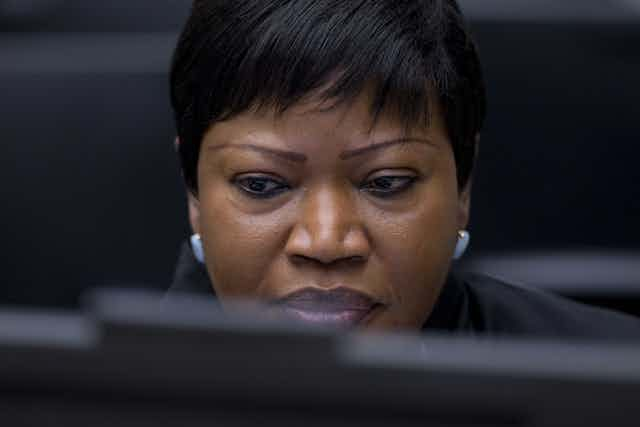Russia has announced it will “unsign” the statute of the International Criminal Court (ICC), which its Foreign Ministry says has “failed to meet the expectations to become a truly independent, authoritative international tribunal”. Its decision comes after three African countries began the process of leaving; the Philippines’ president, Rodrigo Duterte, signalled that his country could be next.
This all suggests a significant shift in global politics. Just as Britain has voted to leave the EU and the US has chosen the exuberantly anti-internationalist Donald Trump to be president, countries the world over are rushing to reclaim sovereignty and reject supranational scrutiny. The ICC, a vital institution tasked with ensuring that governments prosecute perpetrators of atrocity, is caught in the headlights.
Established in 2002 to try individuals accused of “the most serious crimes of international concern”, the court’s jurisdiction is dependent on the consent of states or on referrals from the UN Security Council. It therefore survives and thrives largely because states allow it to.
This has always been a key problem. The US and Russia have never formally backed the court, although Russia did sign its founding document, the Rome Statute (hence the recent “unsigning”). They also haven’t gone out of their way to impede it, however, being apparently happy for the prosecutor to focus her resources on Africa’s woes. But times are changing.
As Trump declared victory and Putin took Russia’s name off the Statute, the ICC’s chief prosecutor, Gambian lawyer Fatou Bensouda, sent a surprising signal proving she is ready to challenge their countries’ actions abroad.
The court has jurisdiction if the actions in question occurred in the territory of a member state, and that includes Afghanistan. Shortly after Trump won, she issued a report alleging that American interrogation techniques in Afghanistan amounted to “the commission of the war crimes of torture, cruel treatment, outrages upon personal dignity, and rape”.
The US has so far responded with what might be called deflective acknowledgement, not refuting Bensouda’s allegations but instead highlighting its own domestic court standards, which it says provide a “robust national system of investigation and accountability that more than meets international standards”.
Far from a blithe dismissal, that response suggests at least some degree of thoughtful engagement with what the court is doing. Russia’s involvement in Crimea and eastern Ukraine is similarly impugned in the document, adding to pressure that had been mounting from the court’s investigation into the 2008 Georgia conflict.
If the timing of Bensouda’s report seems calculated to be as awkward as possible, the truth is that she had little choice but to hurry up and release it.
Putting them on notice
Throughout October the ICC was rocked when a string of African states, dismayed at the apparent “neo-colonialist” tendencies of an institution that had focused its resources on Africa’s profusion of armed conflicts, began withdrawing from the court altogether.
Burundi was the first, citing the court’s double standards: “since the creation of the ICC … not a single Western war criminal has been indicted”. In truth, it was probably more concerned about ongoing investigations of its government’s alleged sponsorship of crimes against humanity. South Africa and The Gambia followed swiftly afterwards; Kenya is reportedly weighing a similar move.
Bensouda’s report on American and Russian behaviour showed that she’s ready to embrace a brave new strategy, and take on the challenge set by Burundi to make the court less Africa-focused. But if holding “the West” to account for international crimes once seemed difficult, recent political developments may only make it harder.

Whereas a Clinton administration would probably have kept up the Obama administration’s generally pro-engagement policies, Trump could return the US to the uncompromising stance of the early George W. Bush years, epitomised by the unconventional powers enshrined in the 2002 American Service Members’ Protection Act, or Hague Invasion Act, which effectively allows for an invasion of the Netherlands in the event that US personnel are put on trial there.
More troubling still is the domino effect that Trump has potentially set off. Putin’s declaration that he will be “unsigning” the Rome Statute is technically meaningless; Russia was never a fully-fledged member of the ICC anyway, and the court will retain jurisdiction over any questionable Russian actions in countries such as Georgia and Ukraine. As a signal to the court and its supporters, though, it tallies with the collective turn against internationalised accountability.
But is this really the end of the ICC? Far from it. In this new political climate of post-globalist tendencies, the world needs the ICC more than ever. Even if its courtrooms are empty, its work goes on: documenting atrocities, pressurising states’ domestic politics, and putting abusive governments on alert. And thanks to Bensouda’s latest announcements, it can no longer reasonably be accused of ignoring the most powerful states.
That Russia and the US have rejected the court indicates that those at the top of the international order are indeed troubled by what it thinks and does. We should not underestimate the power of the law to bring about change, even when it can’t quite reach the places it needs to go, and even when it seems most unlikely.
The ICC owes it to Burundi (and indeed to all African states) to uphold this standard. If it does, it could yet enter a brave new era.

